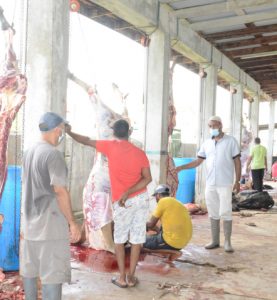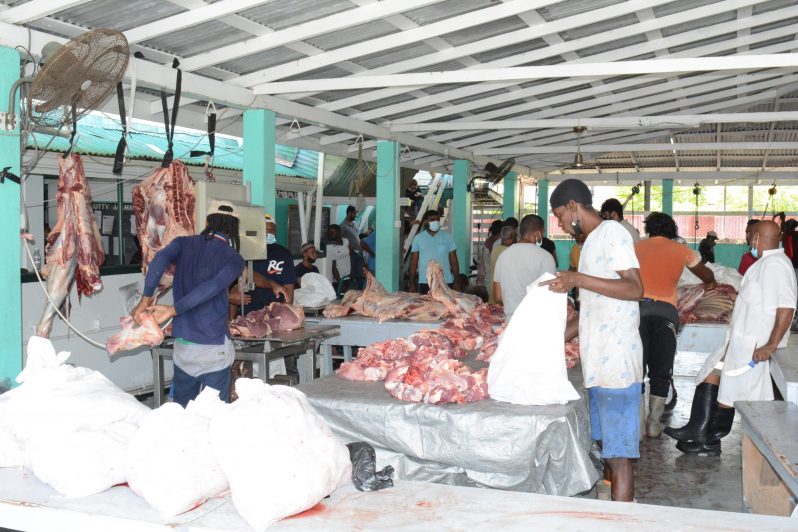MUSLIMS countrywide, on Wednesday, celebrated Eid ul Adha while adhering to the COVID-19 protocols as animal sacrifices were made to reflect on Prophet Ibrahim’s willingness to give up his son Ismail, for the sake of God.
Many mosques and masjids were not a hive of activity as happened before the arrival of COVID-19 here, but that did not stop their work in observance of the charitable day.
Imam of the Meten-Meer-Zorg West Masjid, Goolzar Namdar, said the festival is also known as Qurbani and, annually, during the Islamic month of Dhul Hijjah, Muslims around the world slaughter an animal, a goat, sheep or cow to reflect Prophet Ibrahim’s willingness to sacrifice his son Ismail.
Ismail, he said was spared because Ibrahim proved he would sacrifice his son as an act of piety, despite the grief it would have caused him. The continued practice of sacrifice acts as a reminder of Ibrahim’s obedience to God.
Don Rahim, a member of Kitty Masjid, said the ‘Festival of Sacrifice’ reminds all of the importance of being supportive to others during trying times.
Other Muslims, Rahim said celebrate by going to the mosque in the morning for special prayers. Later, family and friends get together for a big meal. There are lots of delicious food, including sweets.

“This year’s gatherings will most likely be much smaller and families may meet online,” he added.
Further, Rahim said the festival highlights the important sacrifices many Muslims make during their daily lives.
“From giving charity to sharing a smile with another person, Eid teaches us to be at peace and sacrifice little things that lead us towards selflessness and awareness of one’s being,” Rahim explained. Meanwhile, Imam of Meten-Meer-Zorg (East) Masjid, Halim Khan, said when families receive Qurbani meat, it fosters a real sense of hope for them and allows them to celebrate this important occasion along with millions of other Muslims across the world.
This year, Khan said that, with social distancing in place, the event had been scaled back and only a limited number of persons were allowed inside the masjid.

“Not all Muslims sacrifice an animal themselves. They can buy special meat from shops and donate that. Or they can donate money to charities that give special meat to others. All these ways honour the story of Ibrahim. Taking care of others is a very important part of being a Muslim,” the Imam said.
Khan explained that by sacrificing an animal “we are confirming that we are willing to sacrifice whatever Allah asks of us and to submit to HIM completely. No matter which school you follow, performing the Qurbani carries a great reward as this is something the Prophet did personally and encouraged his followers to do too.”
Further, the Imam, who is also a businessman, said the meat of a sacrificed animal should be divided into three parts: One part for the person who supplied the animal; one part to be shared out among family, friends or neighbours; and one part to be given to those in need.
Central Islamic Organisation of Guyana (CIOG), President Al Hajj Shahabudeen Ahmad, said Eid-ul-Adha is the celebration of the reformation of the human condition from that of servitude to men to the Creator of all living and non-living things.
“We must remain humble and do not fall into the trap of considering yourself better than others,” he noted.
He added: “Let us pray for peaceful co-existence in Guyana and the entire world. Change begins with the person in the mirror. Our actions must prove that we mean no ill to anyone and we must remember that we are all part of one humanity. Each one of us has to be the change that we desire. Verily, Allah will not change the condition of a people until they change themselves. As we enjoy ourselves, let us keep the remembrance of God ever-present on our tongues and in our hearts. Let us extend kindness to our less fortunate.”



.jpg)








